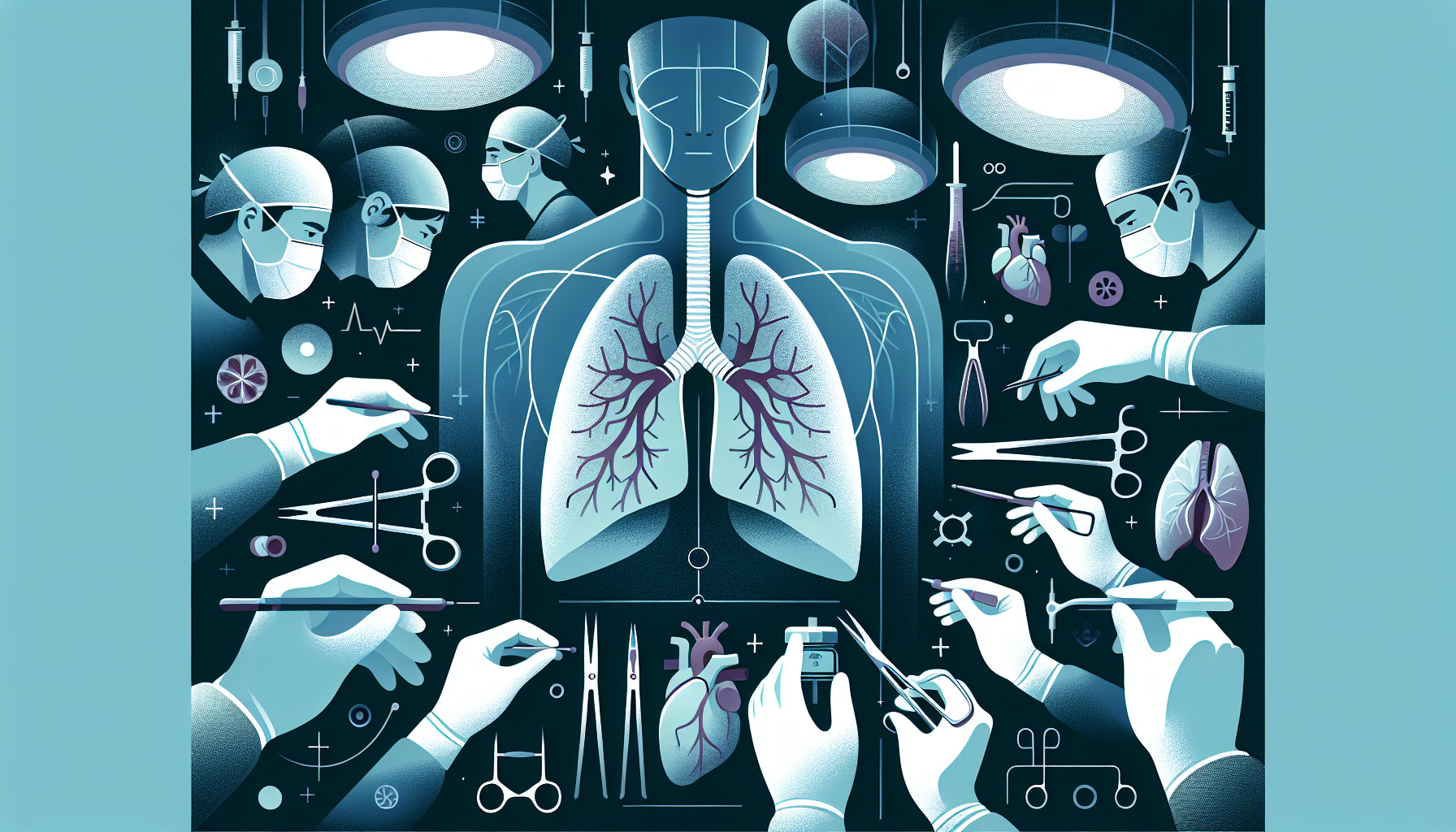Our Summary
The study investigated whether the distance a patient needs to travel for a lung transplant in the United States affects the outcome of the transplant. The researchers looked at data from lung transplants carried out between January 1, 2006, and May 31, 2017. They found out that the average distance a patient traveled was about 70 miles. Interestingly, almost half of the patients who lived more than 60 miles away from a transplant center chose to go to a more distant center.
The researchers also found that patients who traveled longer distances went to centers that performed more transplants each year. When considering other factors, the researchers found that patients who traveled more than 360 miles had a slightly higher risk of the transplant failing compared to patients who traveled 60 miles or less. These patients also had a higher risk of needing treatment for acute rejection, where the body’s immune system tries to attack the transplanted organ.
In conclusion, how far a patient travels for a lung transplant does have an effect on the outcome, but the effect is relatively small. The distance a patient needs to travel is an important factor to consider when trying to improve access to lung transplants.
FAQs
- Does the distance a patient needs to travel for a lung transplant affect the outcome of the transplant?
- What is the risk for patients who traveled more than 360 miles for a lung transplant compared to those who traveled 60 miles or less?
- Why do some patients choose to go to a more distant transplant center?
Doctor’s Tip
One helpful tip a doctor might tell a patient about lung transplant is to carefully consider the distance they need to travel for the procedure. It is important to weigh the benefits of going to a center that performs more transplants against the potential risks associated with longer travel distances. Patients should work closely with their healthcare team to determine the best transplant center for their individual needs and circumstances. Additionally, it is important to follow all post-transplant care instructions to ensure the best possible outcome.
Suitable For
Patients who are typically recommended for a lung transplant are those with end-stage lung disease, such as cystic fibrosis, chronic obstructive pulmonary disease (COPD), pulmonary fibrosis, and pulmonary hypertension. These patients have severe lung dysfunction and have exhausted all other treatment options. Additionally, candidates for lung transplant must meet specific criteria, including being non-smokers, having a BMI within a certain range, and being in overall good health aside from their lung condition.
Patients who are younger, have strong family support, and are compliant with medical treatment are also more likely to be recommended for a lung transplant. It is important for patients to undergo a thorough evaluation by a transplant team to determine if they are suitable candidates for the procedure.
Timeline
Before lung transplant:
- Patient is diagnosed with a severe lung disease, such as COPD or pulmonary fibrosis.
- Patient undergoes evaluation and testing to determine if they are a suitable candidate for a lung transplant.
- Patient is placed on a waiting list for a donor lung.
- Patient may need to undergo additional treatments or therapies to stabilize their condition while waiting for a transplant.
After lung transplant:
- Patient undergoes the lung transplant surgery, which typically takes several hours.
- Patient is closely monitored in the intensive care unit immediately after surgery.
- Patient begins a long and challenging recovery process, which includes physical therapy, medication management, and frequent follow-up appointments.
- Patient must adhere to a strict medication regimen to prevent rejection of the donor lung.
- Patient gradually regains strength and lung function over time, but may still experience complications or setbacks.
- Patient must continue to follow-up with their transplant team for the rest of their life to monitor the health of their new lung and overall well-being.
What to Ask Your Doctor
Some questions a patient should ask their doctor about lung transplant include:
- What is the success rate of lung transplants at the transplant center I am considering?
- How many lung transplants does the center perform each year?
- How far is the transplant center from my home, and how will I travel to and from the center for appointments and follow-up care?
- What support services are available for patients who need to travel a long distance for a lung transplant?
- How will the distance I need to travel for the transplant affect my recovery and long-term outcome?
- Are there any specific risks or complications associated with traveling a long distance for a lung transplant?
- Are there alternative transplant centers closer to my home that I should consider?
- How will the transplant center coordinate care with my local healthcare providers before and after the transplant?
- What resources are available to help me navigate the logistical and financial challenges of traveling for a lung transplant?
- Are there any specific factors about my medical history or condition that may impact the decision to travel for a lung transplant?
Reference
Authors: Tsuang WM, Arrigain S, Lopez R, Snair M, Budev M, Schold JD. Journal: Transplantation. 2020 Nov;104(11):2365-2372. doi: 10.1097/TP.0000000000003129. PMID: 31985730
